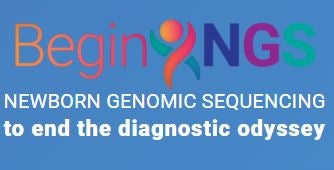New genetic newborn screening test is a ‘quantum leap forward’
INDIANAPOLIS (WISH) — A new screening for newborns could expand the number of genetic diseases infants are tested for before they leave the hospital.
The project is called BeginNGS, with the NGS standing for Newborn Genomic Sequencing.
Dr. Amy Shapiro is a pediatric hematologist and the medical director and CEO of the Indiana Hemophilia and Thrombosis Center. She is helping with the project and describes it as a “paradigm shift in newborn screening.”

“This is a quantum leap forward. It is changing the whole process, the whole way of analyzing, the whole way of reporting — making sure that it is linked to treatment information — it is an amazing leap forward. They want to, not get rid of the old system, but make this system so it is available and is much faster, more accurate, timely and identifies far more disorders,” Shapiro said.
Babies in Indiana are currently tested for 57 disorders before they leave the hospital. BeginNGS could test them for up to 1,000 genetic diseases or disorders and get the results back to parents in 48 hours, according to Shapiro.
“We are talking about whole genome sequencing, not one gene here, one gene there. The whole genome,” Shapiro said. “Our aim is to help diagnose these disorders very early and get these children to treatment.”
BeginNGS is based at the Rady Children’s Institute for Genomic Medicine in California and is led by Dr. Stephen Kingsmore. The project uses the same heel prick blood test to screen babies before they leave the hospital.
Shapiro says the goal is to look at a newborn’s entire genetic code and screen them for very rare, sometimes deadly genetic diseases before they ever get sick. Many of the diseases, if caught early, could be treated or better managed, therefore improving or saving the lives of babies. The program also links parents with specialists, education, and therapies for diseases.
Dr. Shapiro helped make the list of bleeding disorders that needed to be screened for in the BeginNGS project. She hopes this will become the genetic disease standard, with testing expanded to up to 1,000 disorders, and sequencing the genes of 3.7 million newborns every year.
“When you look at the disorders that are currently tested, they are all important disorders they are all actionable disorders in which you can impact the overall healthcare of infants. But there are many other disorders that are even rarer than the ones that are currently on that panel that can be tested and be actionable to improve the child’s life and that child’s outcome,” Shapiro said.
Babies in Tennessee and California are currently being tested in the pilot stages of the project. The goal is to make the project affordable and available across the country.